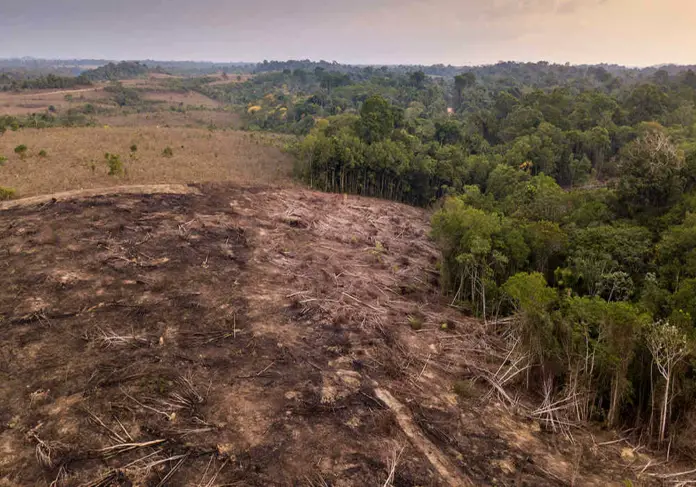Brazilian Amazon forest deforestation decreased by a third in the first half of President Luiz Inacio Lula da Silva’s term as compared to the same period in 2013, the government reported.
Based on satellite photographs taken by the National Institute of Space Research, which reported that a total of 2,649 square kilometers (1,020 square miles) of rainforest were cleared from January through June, the 33.6% decline was calculated.
In a significant shift from the previous administration, Brazil’s new president, Luiz Inácio Lula da Silva, commonly known as Lula, has made combating climate change and deforestation a top priority. Recent data shows a notable decline in deforestation rates in the Amazon rainforest, signaling positive outcomes from Lula’s policy measures.
According to Environment Minister Marina Silva, deforestation in the Amazon has shown a steady downward trend since Lula assumed office. In the first six months of 2023, approximately 3,300 square kilometers of forest were lost, a decrease of 17% compared to the same period in 2022 when former president Jair Bolsonaro, known for his pro-business and far-right stance, held power.
The drop in deforestation becomes even more pronounced when looking at June’s figures, which indicate a 41% decline compared to June 2022. Minister Silva credits Lula’s policies aimed at fighting climate change and protecting the Amazon as the driving force behind these positive results.
During Bolsonaro’s presidency, from 2019 to 2022, deforestation rates skyrocketed by 75% compared to the previous decade’s average. Recognizing the urgency of the situation, Lula wasted no time in launching an ambitious plan to combat illegal deforestation in the Amazon. This initiative followed opposition lawmakers in Congress passing changes that limited certain powers of the environment ministry.
Lula’s government has committed to seizing half of the illegally deforested land in areas with special environmental protection, preserving three million hectares (7.4 million acres) of land by 2027, and strengthening Brazil’s environmental monitoring network. These efforts have received praise from environmental groups, such as the Climate Observatory, whose leader, Marcio Astrini, commended the government’s actions in applying the law and protecting the invaluable treasure that is the Amazon.
Lula has also been actively engaging with the world’s wealthiest countries, urging them to contribute financially to initiatives aimed at safeguarding the rainforest. Norway and Germany have already been supporting conservation efforts through the Amazon Fund, and Lula seeks to expand these contributions.
Given the growing global focus on environmental protection, the issue holds significant weight as the South American trade bloc Mercosur negotiates a long-awaited free trade agreement with the European Union. The EU has recently demanded increased efforts from the four Mercosur countries to combat environmental crimes, making environmental protection a crucial factor in the negotiations.







